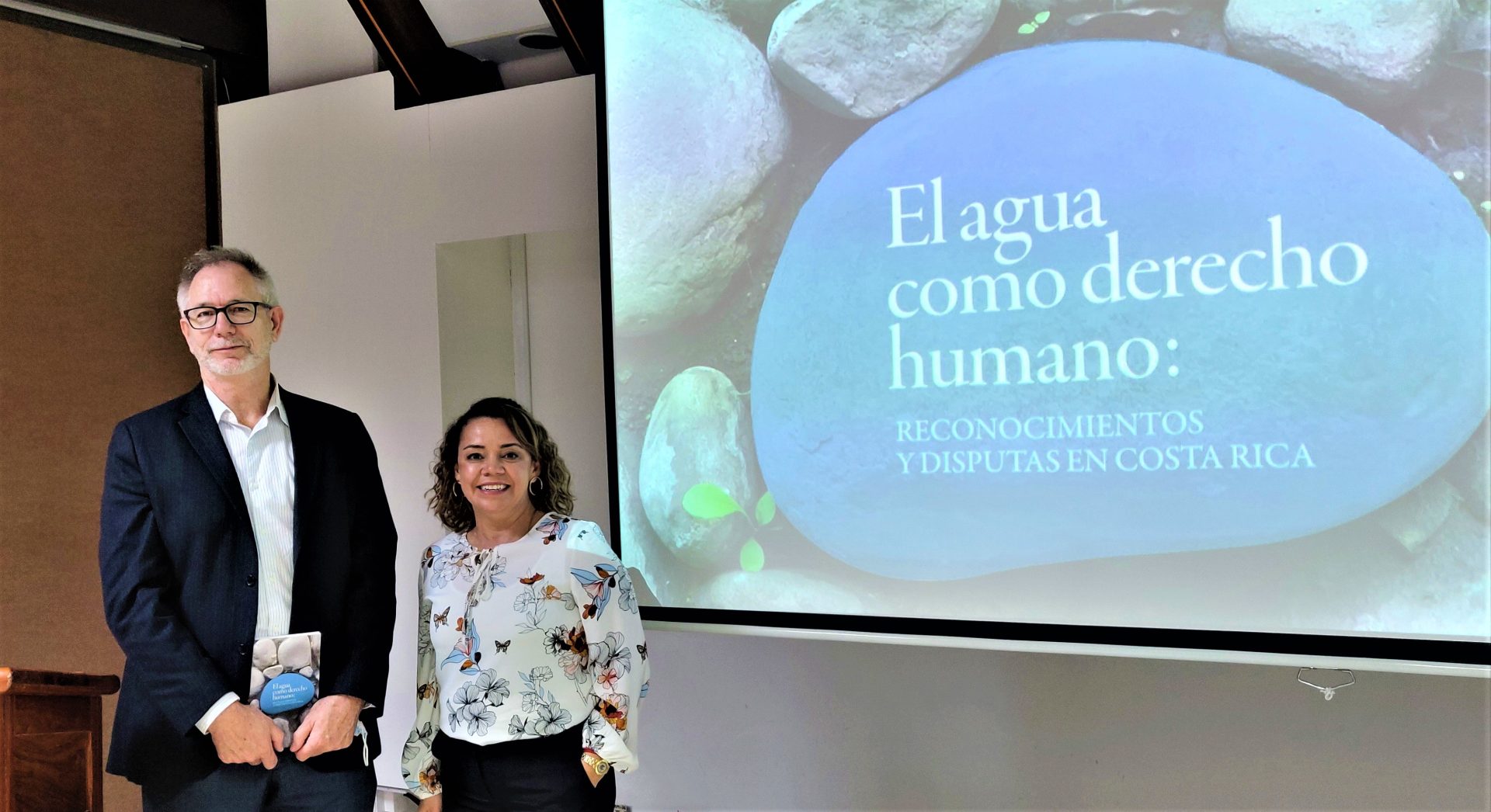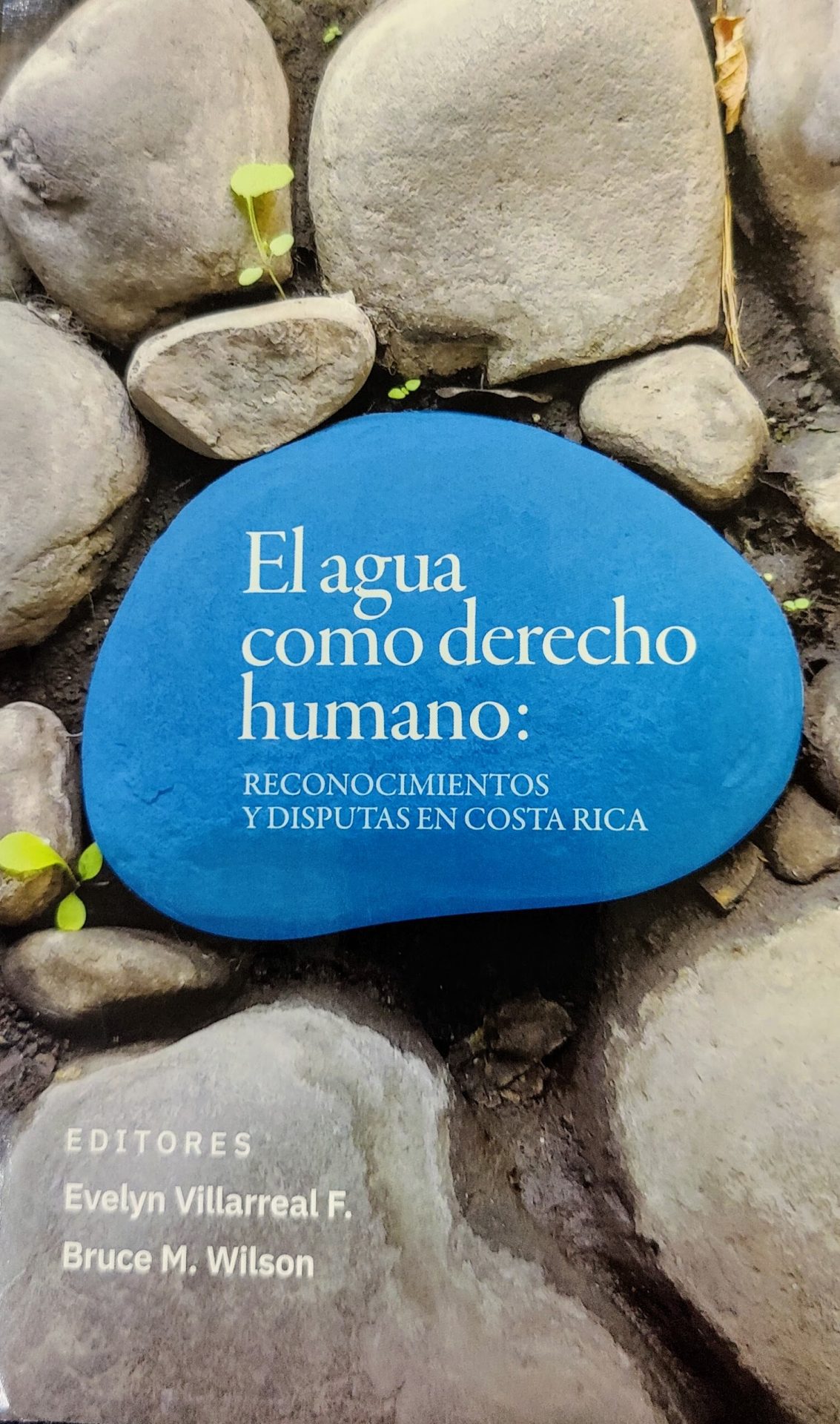Water Rights Book Launches in Costa Rica

Professor Bruce Wilson (Left) published a new book, El agua como derecho humano: Reconocimientos y disputas en Costa Rica (Water as a Human Right: Recognitions and Disputes in Costa Rica). The book, co-edited with Evelyn Villarreal (Right), research coordinator at the Programa Estado de la Nación, analyzes the role of the human right to water and sanitation in shaping the progress and problems in supplying safe water to all people in Costa Rica.
By BRUCE WILSON
Professor Bruce M. Wilson, Ph.D., has published a new book, El agua como derecho humano: Reconocimientos y disputas en Costa Rica (Water as a Human Right: Recognitions and Disputes in Costa Rica), with the academic press PEN- CONARE in San José, Costa Rica. It was released at a book launch in San José, Costa Rica and simultaneously online, on April 22. The book, co-edited with Evelyn Villarreal, research coordinator at the Programa Estado de la Nación, analyzes the role of the human right to water and sanitation in shaping the progress and problems in supplying safe water to all people in Costa Rica. Over the last 20 years, Costa Rica, a leader among Latin American countries, has approached a level of access to safe water on par with that of high-income western countries. Yet, despite the high aggregate level of water access, pockets of insufficient access to water remain, especially for individuals in the lowest income brackets.
The book’s contributors include 11 established and early-career scholars primarily from Costa Rica. Dr. Léo Heller, the special rapporteur on the human rights to safe drinking water and sanitation (2014-2020) and Nancy Hernández López, a judge on the Inter-American Court for Human Rights and former judge on Costa Rica’s Supreme Court, wrote forewords to the book and gave presentations during the book launch. The book was featured on two Costa Rican national news programs, TeleTica and Canal 13, and on the Global Perspectives TV show on WUCF PBS station.

Front cover design of El agua como derecho humano: Reconocimientos y disputas en Costa Rica (Water as a Human Right: Recognitions and Disputes in Costa Rica), with the academic press PEN- CONARE in San José, Costa Rica.
The United Nations recognized the Human Rights to Water and Sanitation (HRtWS) in 2010. According to the CDC, universalizing access to water and sanitation, could potentially “prevent at least 9% of the global disease burden and 6% of global deaths.” Yet, the effectiveness of the human right in improving access to safe water is not always clear. According to a recent WHO and UNICEF report almost a billion people worldwide still have no access to safe drinking water and more than two billion lack access to basic sanitation. Wilson’s related research on water access in global comparison indicates that water access improves as countries become wealthier and when they have competitive democratic processes at the local level, and preliminary research findings suggest that women’s political representation is also linked to improved access to safe water.
The book project is part of Wilson’s larger grant project “Elevating Water Rights to Human Rights: Has it strengthened marginalized peoples’ claim for water?” funded by the Norwegian Research Council. In addition to the book, the project has resulted in numerous journal articles as well as two special issues of peer-reviewed journals on the impact of the Human Right to Water and Sanitation. “We are nearing the end of the grant period, and I’m very pleased to see the publication of this book on Costa Rica, which will contribute to the ongoing discussion about resolving water access issues in the country as well as the academic literature on the impact of Human Rights. Although this is an academic publication, it is hoped that it will be of use to everyone involved in the discourse regarding the use of human rights approaches to access to safe, accessible, affordable drinking water in Costa Rica,” Wilson said.
